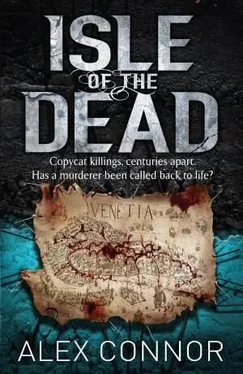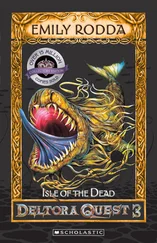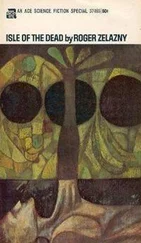‘How did she find out?’
‘I don’t know who told her. Her parents maybe.’
Nino frowned. ‘Why would they?’
‘Seraphina could have talked about the Titian she’d found and they could have offered up the family connection.’ He clicked his fingers impatiently. ‘How do I know who told her! She just knew , that was all. It scared me—’
‘Why?’
‘I don’t know,’ Johnny replied. He looked at Nino, his gaze surprisingly intense, then glanced away. ‘For the next two days I phoned her continually. We met up, went shopping. Ate out together. You see, I wanted to be with her, to watch out for her. Then, on Wednesday morning, she was found dead.’ He paused, alert. ‘What is it?’
Without answering, Nino took the newspaper out of his pocket and handed it over. Frowning, Johnny Ravenscourt read the headlines. A moment passed, then he pointed to his notes, lying on the table between them.
‘I’m not a brave man, I think that’s obvious. I’m a rich, spoilt old queen, with no taste for danger. But I loved Seraphina and I want to know who killed her.’ He pushed the notes further towards Nino. ‘Please take the help I offer you, Mr Bergstrom. In those papers is everything I know about Angelico Vespucci. Everything I think there is to know about The Skin Hunter.’ His voice was insistent. ‘Take them. You don’t have to bring them back. I don’t want them back. Just read them – and remember Seraphina.’
Nodding, Nino picked up the notes.
‘I think this is just the beginning,’ Johnny said, as he stared at the photograph of Sally Egan, ‘so perhaps now is the time for you to start reading?’
Venice, 1555
Did I tell you I was afraid of water?
The tide is rising now, higher than it has ever done, over the steps behind the houses, lapping on to the stone floors, making lazy pools under tables, silk rugs floating like bladderwrack. And with it comes the mist. The Doge is ill; some say it is another omen, some intimation of disaster coming with the freezing tides.
Not that Aretino feels any trepidation. He has a new lover, a woman as amoral as he. The Contessa di Fattori. A whore all Venice knows. Her husband encourages her excesses, wills her to try new lusts. It is said he derives his pleasure from the recalling of it. She is tall, this di Fattori, hair red as a night fox, eyes eerily blue under the triumphant arches of her brows. Cosseted by her husband’s wealth, she revels in her hedonism. Luxuries are imported for her, carpets from India, perfumes from France, and in her bedchamber there are flowers sent from Holland weekly, daring the winter tides.
Some say she is a witch. For all her power she may be so. Stealing her husband from his betrothed, she soon looked elsewhere. Walking across the piazzas with her maid and blackamoor in tow, di Fattori is imperious, heading, unashamed, for low places, or one of the threatening tangle of back streets where she is expected. It is rumoured she will lie with Arabs or boys hardly above ten, her servants sleeping on the steps outside. Sometimes, at dawn, di Fattori can be seen returning home, with her head upright like a conqueror, smelling of sex.
It was inevitable that she should entrance Aretino and he is smitten, even knowing that she laughs at his gut and his poor manhood. Vicious and fascinating, di Fattori rattles the dice of her fate, not caring for the outcome. She is reckless, demanding, cruel. She is Aretino’s true match.
They say all three writhe in a mutual bed, di Fattori demanding attention from the merchant when Aretino tires. And as this latest information came to the streets, December crawled in. It came with biting winds.
A body bumped up against the struts of a bridge, rolling and turning in the tide, and finally jammed itself against the stonework. A moment later, footsteps were heard running. Echoing, disembodied, they faded into the Venetian streets.
I heard that the woman was mutilated, her back skinned, but not the rest of her. This time the murderer had been disturbed, cheated of his enjoyment. The hunter had killed but had been denied his skin.
Let me set down the date for this record. It was 26th November 1555, and the second victim was the wife of a merchant. Her name, Claudia Moroni.
17
Ginza, Japan
The alarm had gone off again at two thirty in the morning. But Jobo Kido, preoccupied and unable to sleep, had been more than willing to leave his bed and drive to his company premises. Within a few moments he had turned off the alarm and then made himself a coffee in the staff quarters off the main gallery. His wife’s constant bad temper had worn away at his feelings and when she had threatened to go and stay with her mother he had been ecstatic. With his son also away, the house would be his for a while. It would be peaceful, uninterrupted by shouting and slamming doors, a temporary haven he would relish. Of course Jobo wouldn’t admit to enjoying his wife’s absence, or she would be sure never to leave again. Instead he would affect a sadness at her leaving and relief at her return and hope further arguments would result in further hiatuses from her tirades.
Fully awake now, Jobo glanced at the clock – nearly 3 a.m. He wondered momentarily if he should go for a walk, but instead sat down at his computer. Seconds later he was looking at a reproduction of Titian’s portrait of Angelico Vespucci …
What he wouldn’t do to get that painting! Jobo thought. As for Farina Ahmadi trying to fob him off! Stupid woman, of course she knew about the Titian. He could tell just from looking into her sly little eyes that she was already imagining it on the walls of the Alim Collection.
He was disappointed at not having found out more in New York. Perhaps it had been too much to hope, but he had longed from some crumb of scandal to drop at his ready feet. And pumping Triumph Jones had been a tiring business. From his lofty height, the American had batted away Jobo’s enquiries like a giant swatting summer wasps. It always irked Jobo that although he was taller than the average Japanese man he always felt diminutive around Triumph Jones. He had also noticed that every conversation they had was conducted with them standing up, the American giving Jobo a prolonged view of his impressive jawline.
But if Triumph Jones had the Titian he wasn’t admitting it … Walking over to his safe, Jobo gave in to the temptation he had tried, feebly, to resist. It was the early hours of the morning – what better time to indulge himself? Fifteen minutes later he was letting himself into another building, double-locking the doors behind him and flicking on the lights.
The gallery was arranged in the normal way, but the exhibits presented a terrifying and disturbing vision. Portraits of known killers hung side by side with the work of John Wayne Gacy, the grotesque clown heads leering out in all their primary heat. And further along was a garish portrait of Jeffrey Dahmer, his stern gaze averted from the viewer, life size, the yellow pigments sour, the red the colour of a tomato, wrongly benign against the image of a killer. On the opposite wall, lit by a searching overhead portrait light, was a photograph of Albert Fish, the child killer and cannibal. And underneath were written his words:
I like children, they are tasty …
Jobo’s eyes moved down the line of monsters, lingering for a second on the drawings of Burke and Hare, the grave robbers, and beside them, a photograph of the dashing Victorian murderer Frederick Deeming, posing as Lord Dunn. The dealer’s gaze rested on the next exhibit with a morose curiosity: Ed Gein, 1906–1984, murderer and grave robber from Wisconsin.
Читать дальше












